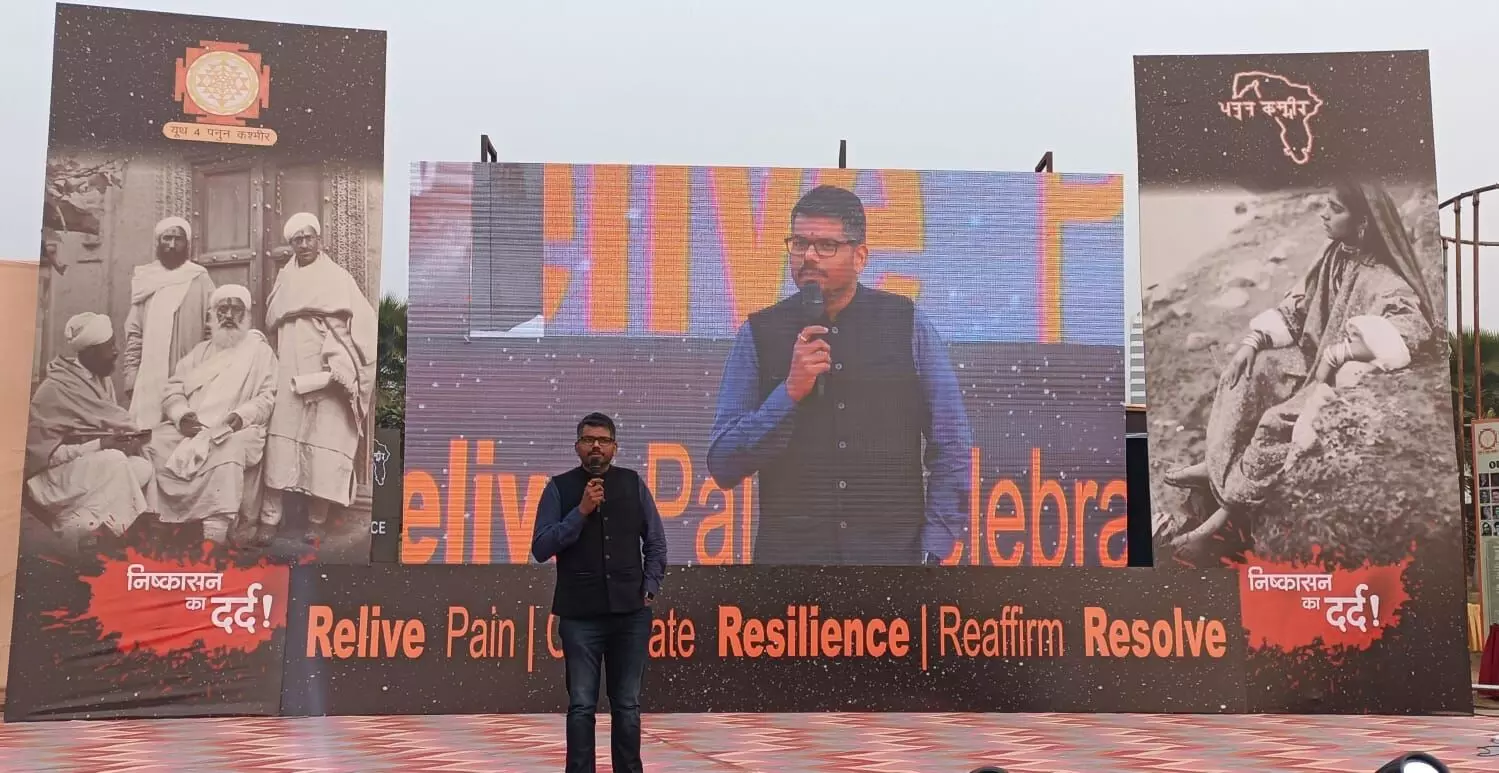J. Sai Deepak Advises Displaced KPs to ‘Form Alliances’ To Achieve the Goal of ‘Panun Kashmir’

Noted independent counsel and litigator in several high-profile cases in the recent public discourse J. Sai Deepak (JSD) was the keynote speaker at the 34th anniversary event of Kashmiri Pandit genocide where he advised the displaced community to actively seek alliances with similar communities while harnessing the power of politics to seek justice for their genocide without becoming politicized themselves. Taking a strategic look at the situation of Kashmiri Pandits, he suggested, “It is important for all the communities that share your identity to understand that you are a case study for a potential future, which is avoidable.”
JSD had a straightforward advice for the Pandit community. He said, “Unless you form those alliances, I genuinely don’t think that this goal would be realistically achievable in the foreseeable future.
Asking the KP community to draw inspiration and a crucial lesson from the Ram Janmabhoomi movement, the author of two bestselling books on India, said, “An apolitical movement whose commitment is to the clarity of its vision but which uses politics exclusively as a medium of delivery will always stand better chances of success than a movement that ends up surrendering its clarity of vision to a political vision.” He ended his speech with the rider, “I have said what I wanted to say without saying it. Jai Shri Ram!”
However, JSD began his speech driving home the point that the KP genocide should be seen in the correct light. He said, “It is an unfortunate reality that the genocide of Kashmiri Pandits is not seen as the genocide of Kashmiri Hindus simply because there is a hyphenated relationship between the Pandit identity and the Hindu identity in the public discourse.” He added that before trying to turn the ‘Pandit sentiment into the Bharatiya sentiment’, first try and make it into a ‘Hindu sentiment.’
Driving home the point, he further said, “Because on one hand, you are trying to regain your homeland whereas the experience of the Kashmiri Pandits is being replicated in different parts of Bharat, if not through the sword or the gun, then through the pen.”
Juxtaposing the Kashmiri Pandits’ plight with similar incidents happening worldwide, the legal luminary said, “The sharpest weapon, according to me, is the ability to inspire hatred in the mind of a person. And that weapon is being wielded across the world against all those communities, which share the identity of Kashmiri Pandits. Unless you are ready to face this reality, you’ll find yourself waging this battle for the next 2000 years and it will be a losing battle.” Drawing one more parallel, JSD stated, “If there is one thing that connects the experience of the Tamil Brahmin with the experience of the Kashmiri Pandit, it is not just their commitment to Shaivism but also in the manner in which we have been systematically dehumanized, not by others, but by our own people who have otherised us.”
Coming to the year 2014, which many believe is when a new leaf was turned in the political history of this nation, Sai Deepak said, “The unfortunate reality of the post-2014 scenario, as much as it has a lot of cause for hope, is the fact that all the anti-Brahmin hatred, that was previously significantly the sole preserve of the Left, is being normalized in the name of social justice through existing dominant political narratives.”
Further, with a disclaimer that he may not be right but in his opinion, the Kashmiri Pandits will never be able to succeed in their goal unless they start putting faith in options beyond their activism. He added that this means the community needs to form alliances with similarly-minded communities and groups across the country. You don’t have the numbers to achieve this on your own.”
(The writer is a Mortgage Specialist and Zonal Manager with Andromeda, India’s largest loan distributor and occasional political commentator.)
